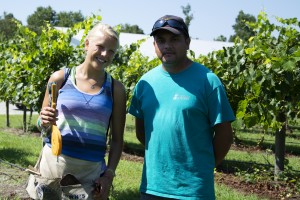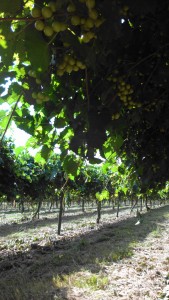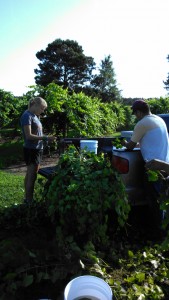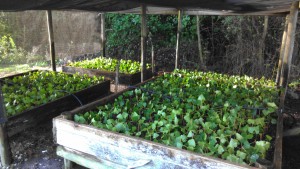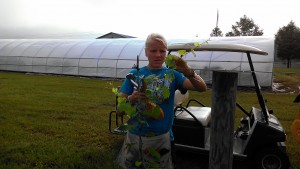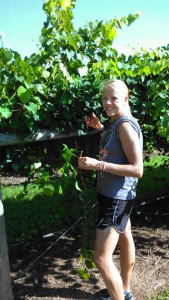Summer experience at the Duplin Winery has been awesome and full of new and exciting experiences and adventures. I was able to experience every part of the Winery – the agrotourism sector, the vineyards, the bistro, the retail store, tours and tastings, productions and processing, and finances. These experiences have afforded me with a comprehensive understanding of how the winery is compartmentalized with each part playing a key role to the business. This is an important understanding I want my kiddos to conceptualize. Also, the variety of experiences will help me build connections for the different interests of my many students. I can design mathematics lessons about planning weddings and murder mystery dinners for some of my young and stylish ladies. I can explain the machinery used in the fields and in processing and productions for my engineer interested students. I can teach about agriculture and growing and harvesting for my farmer kiddos.
The majority of my time was spent working in the vineyards with two intelligent, talented and kind men – Carlos and Torrevio – and I believe these experiences will have the largest impact on my classroom, kiddos, school, and greater community. As I have previously mentioned, the economy of Duplin County is agriculture. Careers in the field of agriculture are likely in many of my kid’s futures, so that’s an area I would like to well-educate them in and provide hands-on experience. Agriculture is fast changing in the 21st century, incorporating many new growing techniques, machinery, bioengineering and biotechnology. Pests are constantly finding ways to beat the old methods and farmers need to integrate new methods and technology to be steps ahead of the buggers. The population of humans is also ever growing, so methods of mass production are needed. With increasing global warming and toxic pollution from carbon emissions, environmentally friendly techniques are needed. There is an increasing need for STEM based agricultural planning and practices to address these needs and concerns. Thus, there are many opportunities in the growing field of 21st century agriculture that my Duplin County kiddos could be a big part of.
In the vineyards, I have been propagating plants to create a new vineyard, balancing soil nutrients, training the vines to grow where we want them to, sampling for pests and addressing concerns, identifying molds and fungi and applying insecticides and fungicides. I’ve been spending hours in the hot hot carolina sun squatting and clipping runners and suckers that steal the plants energy and nutrients inhibiting grape production . New knowledge has also prompted me to research further about new technology and practices being used all over North Carolina and the United States. Before my experiences and research this summer, I didn’t know anything about growing, nor viticulture, nor important 21st agriculture technologies.
Inspired by my Summer experiences, my bigger longterm goal is to create a garden and mini-vineyard at Charity Middle School, and to use this garden to excite, engage, and teach my kiddos about the growing and future college and career opportunities in STEM and Agriculture. Through the garden, I hope for my students and the community at large to reconnect to growing and consuming real food from the earth. I hope together we can learn about and practice local, sustainable food production, and spread these practices through out the community – and my kiddos can be the leaders of this.
My summer experience has also help me build important communities of connection and collaboration. I have been connected with my Kenan Fellows cohort and staff of awesome STEM educators. We can collaborate on lesson planning and classroom ideas, bouncing ideas off of each other and sharing cool resources and tools. We can work together on projects of greater educational transformations. When we are stuck, we can look to each other for resources and as sources of motivation and recharging. The experience has also connected me with a greater Duplin County community. I have built many connections at the Duplin Winery and with farmers all through out North Carolina – all who are excited to help and be a part of future agricultural projects with my kiddos. Overall, the experience leaves me feeling like I have a bigger support network and greater community of collaboration, in which I can better help my kiddos, school, and community.
